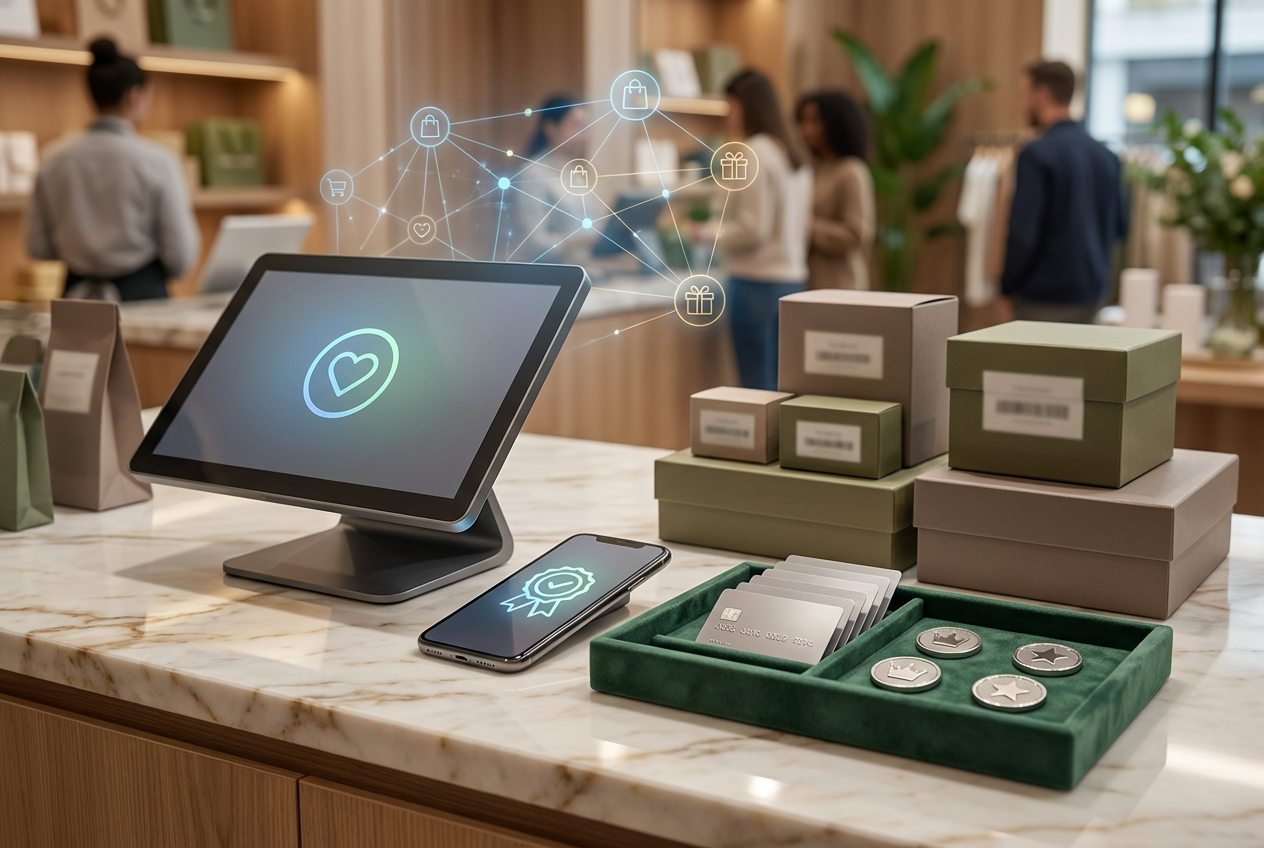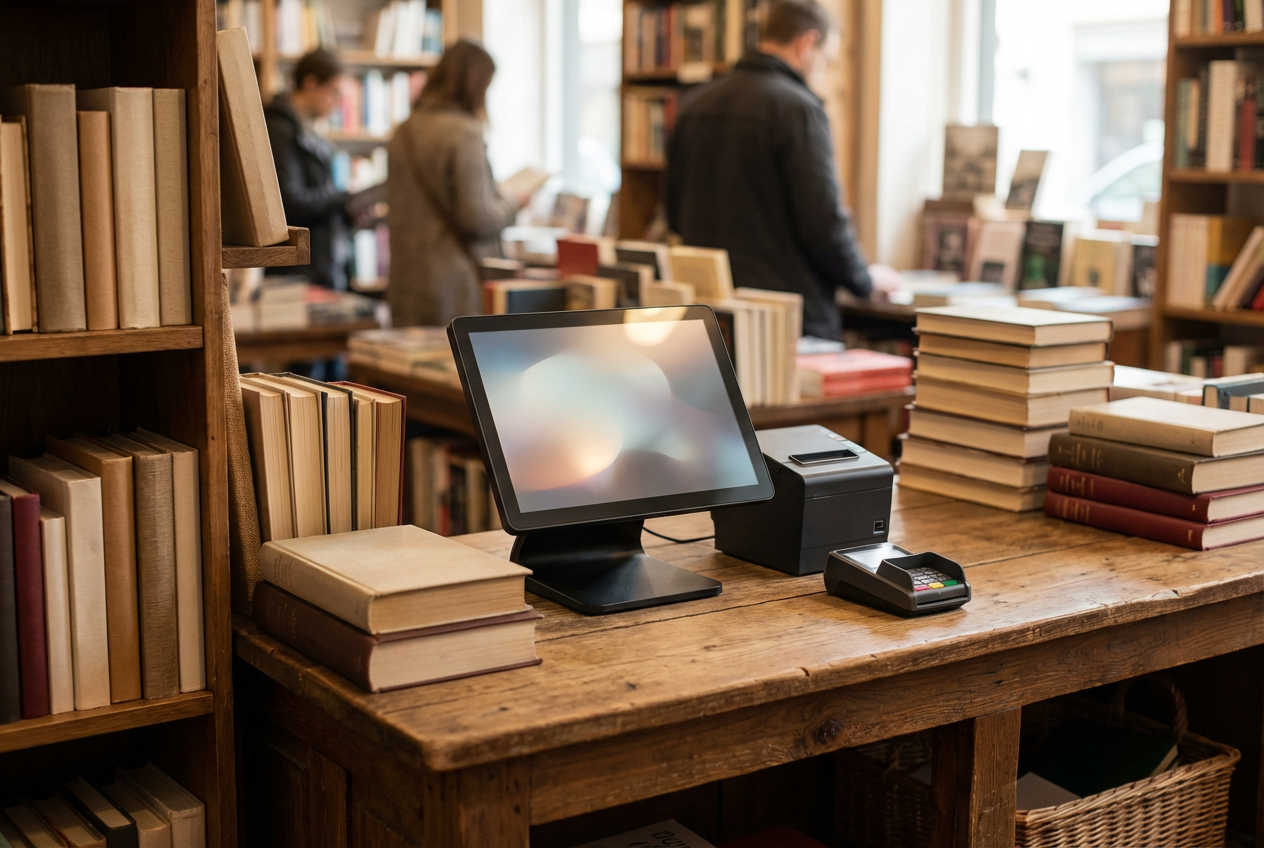Many small business owners struggle to balance affordability with features that truly support their operations. Choosing the right POS system can be a turning point for small businesses. A reliable solution helps manage sales, track inventory, and improve customer experience without adding complexity.
However, with so many options available, it’s easy to feel overwhelmed. What is the best POS system for a small business? This article breaks down what makes a POS system effective for small businesses and highlights the key factors you should consider before making a decision. By the end, you’ll know how to find a system that fits your goals and sets your business up for growth. Let’s get started!
Highlights
- POS systems help small businesses manage sales, track inventory, and collect customer data efficiently, reducing errors and saving time.
- Key features to look for include real-time inventory management, flexible payment options, detailed reporting and analytics, customer relationship tools, and seamless omnichannel integration.
Why Small Businesses Need a POS System
A POS system does much more than process payments. For small businesses, it acts as a central hub that simplifies daily operations and supports growth. Relying on a traditional cash register often means missing out on valuable insights and opportunities to serve customers better. Here’s why a POS system is essential:
- Inventory Management Software (MSI): Track stock in real-time, avoid shortages, and quickly identify best-selling items.
- Sales tracking: Generate detailed reports that show performance by product, time, or employee, helping you make smarter business decisions.
- Customer data: Collect information about shopping habits, preferences, and purchase history to guide personalized service.
- Time savings: Automate tasks such as reporting, stock updates, and receipt generation, which reduces manual work and prevents costly errors.
- Omnichannel POS selling: Connect in-store and online sales, keeping inventory and customer data synced across all platforms.
- Customer loyalty: Offer discounts, promotions, or loyalty programs based on accurate customer insights, making repeat sales easier to achieve.
For small businesses aiming to compete and grow, a POS system is more than a tool. It is a foundation for smoother operations, stronger customer relationships, and sustainable success.
Key Features Small Businesses Should Look For in a POS System
Choosing the best POS system for a small business means looking beyond payment processing. The ideal solution should streamline operations, save time, and provide tools that enable the business to grow. Here are the key features you should focus on:
- Easy setup and user-friendly interface: A POS system should be simple to install and intuitive to use. Minimal training allows staff to start using it quickly without slowing down business.
- Inventory management: Real-time stock tracking prevents both shortages and overstock. Features like low-stock alerts and barcode scanning make managing products more efficient.
- Payment flexibility: Customers expect multiple payment options. Look for a system that supports credit and debit cards, e-wallets, Buy Now Pay Later (BNPL), and split payments.
- Sales reporting and analytics: Insightful reports help identify best-selling items, busiest hours, and customer buying patterns. This information guides smarter decisions on pricing, promotions, and stock.
- Customer relationship management (CRM): Loyalty programs, targeted promotions, and personalized offers encourage repeat business and improve customer retention.
- Omnichannel integration: A strong POS system connects seamlessly with eCommerce platforms and online marketplaces, ensuring inventory and customer data stay consistent across all channels.
- Scalability and affordability: Small businesses need solutions that can grow with them. Flexible pricing plans and features that expand as the business expands ensure long-term value.
A POS system with these features creates more than operational efficiency. It supports better customer experiences, keeps sales organized, and provides insights that help small businesses stay competitive and grow sustainably.
What is the Best POS System for a Small Business in 2025?
Here are the best considerations you should take into account when selecting the best POS software for your business.
ConnectPOS – Best for Omnichannel and Scalability
ConnectPOS is a cloud-based POS system designed to help small businesses manage sales across multiple channels with ease. The real-time synchronization ensures that both online and offline stores share the same inventory, pricing, and customer data, reducing errors and improving efficiency.
Key strengths of ConnectPOS include:
- Omnichannel capabilities: Real-time sync across physical stores, eCommerce platforms, and marketplaces for unified sales and inventory management.
- Advanced inventory management: Track stock across multiple warehouses, manage product variants, and set low-stock alerts.
- Backorder software: Organize order fulfillment, minimize delays, keep inventory moving smoothly across all locations, and transform potential lost sales into positive customer experiences
- Mobile POS: Serve customers anywhere, in-store or on the go with mobile devices such as tablets and smartphones.
- Order fulfillment tools: Manage click-and-collect, ship-from-store, and delivery orders seamlessly.
- Comprehensive reporting: Analyze sales, inventory, and staff performance with clear, data-driven insights.
- Customer engagement features: Run loyalty programs, create targeted promotions, and offer personalized discounts.
- Seamless integrations: Connect effortlessly with Shopify, WooCommerce, BigCommerce, and Magento to support business growth.
Scalability is another reason ConnectPOS stands out. Its flexible structure supports businesses as they expand by adding new stores or handling higher transaction volumes.
►►► Optimal solution set for businesses: Multi store POS, Next-gen POS, Inventory Management Software (MSI), Self Service, Automation, Backorders
ConnectPOS provides a reliable, future-ready solution that balances efficiency, customer satisfaction, and long-term value.
Square POS – Best for Simplicity and Mobile Use
Square POS is ideal for small shops, pop-up stores, and mobile businesses that need a simple, reliable solution. Its intuitive interface allows staff to start processing sales quickly without extensive training.
Key features include:
- Mobile-friendly design: Works on smartphones and tablets, making it easy to sell anywhere.
- Affordable hardware: Offers card readers, terminals, and registers at low upfront costs.
- Flexible payment processing: Accepts credit and debit cards, contactless payments, and digital wallets.
- Basic inventory management: Track stock, set alerts, and manage products efficiently.
- Reporting and analytics: Access sales summaries and insights to understand performance and customer behavior.
Square POS also provides an ecosystem of tools for invoicing, online sales, and appointment management. It’s a combination of simplicity, mobility, and cost-effectiveness. For entrepreneurs seeking a straightforward, versatile POS, Square delivers a practical, user-friendly option.
Lightspeed POS – Best for Retail Inventory Management
Lightspeed POS is designed to manage larger product catalogs and needs detailed control over inventory. Its powerful tools help businesses track stock, manage vendors, and optimize product flow across multiple locations.
Key features include:
- Advanced inventory management: Monitor stock levels in real time, track product variants, and set low-stock alerts.
- Vendor management: Streamline ordering, track supplier performance, and manage purchase orders efficiently.
- Multi-location support: Keep inventory synchronized across several stores, reducing errors and stockouts.
- Sales reporting and analytics: Access insights on best-selling products, peak hours, and customer trends.
- Customizable catalog: Manage large assortments with ease, including categories, pricing, and product attributes.
Lightspeed POS also integrates with eCommerce platforms and accounting tools. Its robust inventory and vendor management capabilities make it a strong choice for businesses that need precise control over stock.
How to Choose the Right POS for Your Small Business?
Selecting the right POS system requires careful evaluation of your business needs and available options. Start by clearly defining your business type. Retail stores, restaurants, and service providers have different requirements, so understanding your specific operations helps narrow down choices.
Key considerations include:
- Pricing models: Compare subscription fees, transaction costs, and hardware expenses. Check for hidden charges to avoid unexpected costs.
- Integration with existing tools: Ensure the POS works with your accounting software, eCommerce platforms, and other business systems. Seamless integration reduces manual work and errors.
- Customer support and training: Reliable support and easy-to-access training materials help your team adopt the system quickly and resolve issues efficiently.
- Scalability and features: Choose a system that can grow with your business and offers features that match your current and future needs.
Taking the time to evaluate these factors ensures you select a POS that improves efficiency, supports growth, and fits your budget. A well-chosen POS system simplifies operations, enhances customer experience, and provides the insights necessary for informed decision-making.
In Conclusion
Choosing the right POS system is a crucial step for small businesses aiming to streamline operations, manage inventory, and improve customer experience. What is the best POS system for a small business? It should combine ease of use, flexibility, and features that match your business type and growth plans.
If you want a POS system that simplifies daily operations, keeps your data synced across channels, and helps grow your business, contact ConnectPOS today. Our team will guide you in selecting the right plan, setting up the system, and maximizing its benefits.
FAQs: What is The Best POS System for A Small Business
Do small businesses really need a POS system?
Yes. A POS system goes beyond processing payments. It helps track inventory, manage sales, analyze performance, and collect customer data, making operations more efficient and supporting business growth.
What’s the average cost of a POS for a small business?
Costs vary depending on features and hardware. Basic systems can start around $30–$50 per month, while more advanced solutions with hardware and integrations can range from $70 to $200 per month. One-time hardware fees may also apply.
Can a POS system work offline if the internet goes down?
Many modern POS systems offer offline mode. They continue processing sales and storing data locally, then sync automatically once the internet connection is restored, ensuring uninterrupted business operations.
What is the best POS system for a small business, such as a retailer or restaurant?
- Small retailers: Systems like Lightspeed POS or ConnectPOS excel at inventory management, multi-location support, and eCommerce integration.
- Restaurants and cafes: Square POS or ConnectPOS provide table management, order tracking, and quick mobile transactions suited for food service.
►►► Optimal solution set for businesses: Shopify POS, Magento POS, BigCommerce POS, WooCommerce POS, NetSuite POS, E-Commerce POS



